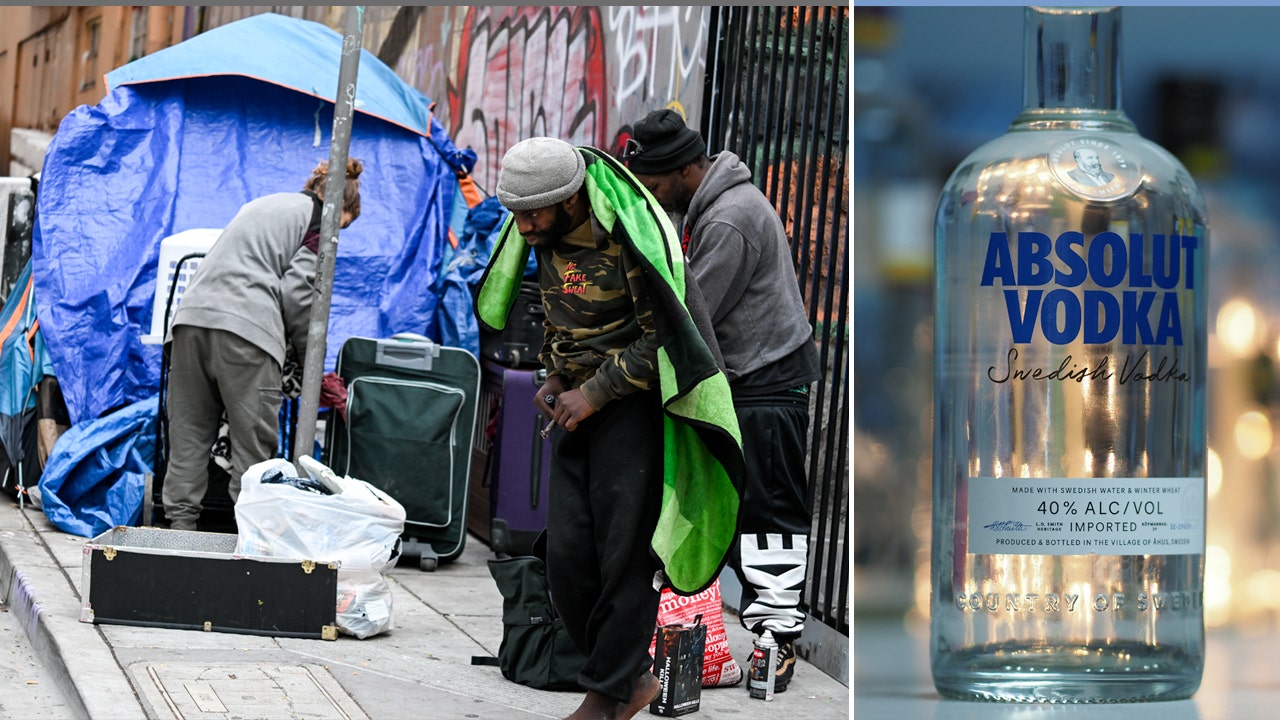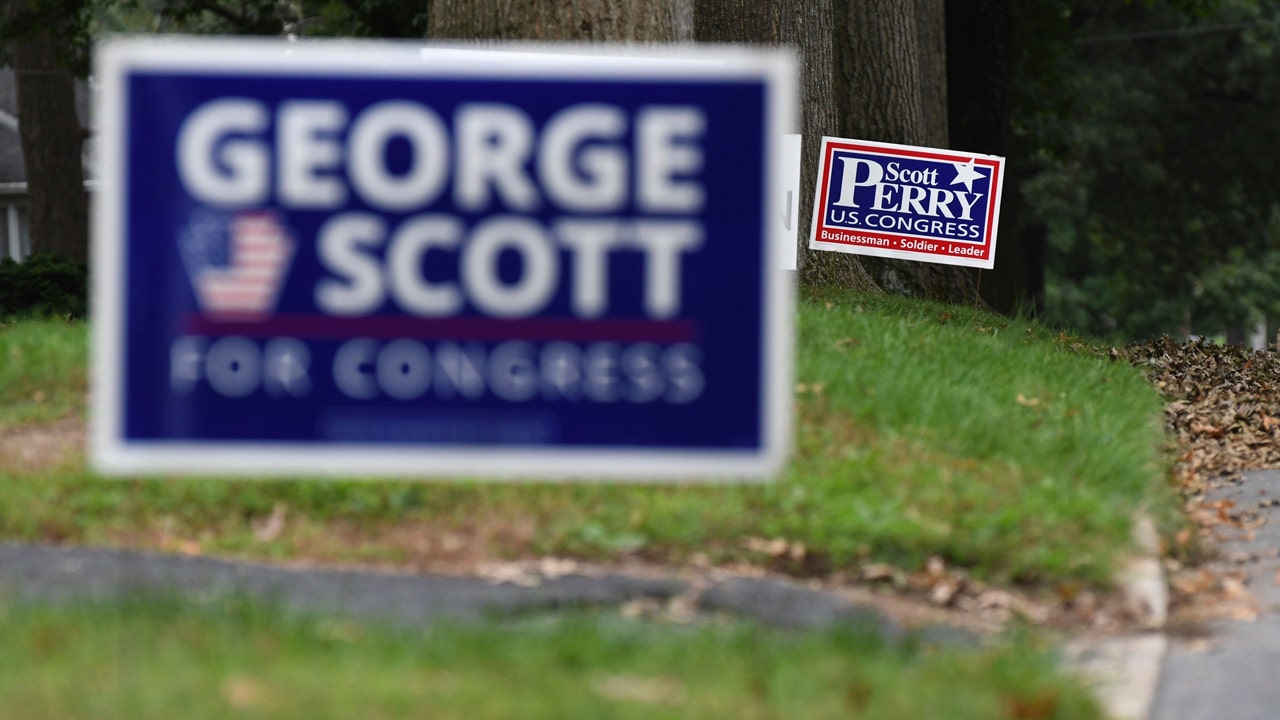Vermont
Man died of overdose at Vermont arts festival, police say
/cloudfront-us-east-1.images.arcpublishing.com/gray/LED56S2Y5BDQ3ICVY2G2CB4A5M.jpg)
BETHEL, Vt. (WCAX) – Investigators say a man found unresponsive at an arts festival in Vermont died of an overdose.
Vermont State Police say on July 7, they were called after Ian Denhart, 35, of Boston, Massachusetts, was found unresponsive at the Firefly Festival in Bethel.
They say Denhart overdosed on the hallucinogenic drug MDA and his death was ruled an accident.
The Firefly Festival bills itself as a community-driven experiential art party in the woods of Bethel.
Related Story:
Police investigating man’s death at arts festival in Vermont
Copyright 2023 WCAX. All rights reserved.

Vermont
Lawmakers pass property tax bill, whittling hike down to nearly 14%

Just after the stroke of midnight on Saturday morning, state lawmakers passed the property tax bill necessary to pay for schools. The vote was 93 to 44 in the House and 18 to 8 in the Senate. Negotiations over the legislation, which will see taxes climb by 13.8% on average, stretched into the final hours of the legislative session.
Gov. Phil Scott is expected to veto the tax bill, and the evening’s vote totals suggest it is unclear whether lawmakers will be able to override him when they return for a special veto session in June.
“I’ve been clear. Vermonters simply cannot afford a historic double-digit property tax increase,” Scott said at his press conference Wednesday.
The rising cost of Vermont’s prek-12 system has dominated debate at the Statehouse this year. A spike in spending, coupled with the retreat of federal Covid-era aid, created a perfect storm, and nearly one in three school budgets failed on Town Meeting Day.
Property taxes were initially predicted in December to rise an average of 18.5% this year, but three factors — new revenues, surplus funds, and lower school budgets — reduced that figure to 13.8%.
Following a string of budget failures at the ballot box, school boards trimmed their spending plans by nearly $24 million. With this tax bill, lawmakers are also removing the sales tax exemption on software accessed remotely — like Turbotax — and enacting a 3% surcharge on short-term rentals, which will together raise a combined $26 million in ongoing revenue for the Education Fund.
The state’s revenues also continue to surpass expectations, which allowed lawmakers to use an additional $25 million in one-time surplus funds from the general fund, and another $44 million in the Education Fund to further take the pressure off property taxes.
All told, that means lawmakers are using just under $70 million in one-time money to help soften the blow to property taxpayers this year. That sum concerns even the tax bill’s supporters, because it risks creating a fiscal cliff next year.
“I’m really, really concerned and it is very difficult for me to vote for these one time funds buying down rates,” Rep. Laura Sibilia, an independent, said in floor speech. “We know that these types of buy-downs exacerbate the ongoing problem. This is part of what has gotten us here — is the administration and legislature continuing to do this year after year.”
Taxes were at one point earlier predicted to climb above 20%. But a legislative intervention mid-way through the session, which axed a tax break that many believed to be partly driving spending, helped head off that worst-case scenario.
The tax bill also includes one-time credit for Vermonters who pay their property taxes based on income to help offset this year’s increase.
The legislation puts back into place a tax penalty for school districts whose budgets climb over a certain threshold, but Scott and his Republican counterparts in the Legislature have heavily criticized the bill for not doing more to limit spending.
“I cannot support a bill that has zero structural change in it. Zero. We are doing nothing for the next year. I cannot support this bill with a double digit property tax increase,” said Republican House Minority Leader Pattie McCoy. “Yes, it is an average. But that average means that some people may be paying 5% — but other people are going to be paying upwards of 25 to 30% increases.”
Lawmakers are using the tax bill to set the stage for much larger reforms in the coming years. It creates a Commission on the Future of Public Education, which will be required to release an interim report on cost containment ideas this December, ahead of the upcoming legislative session. A final set of recommendations for a comprehensive overhaul of the state’s education system is due the following year.
“We know the field is ready like never before to have the tough conversations, to sacrifice the sacred cows and to do what it takes to have an educational system that brings people to Vermont — not drive them away due to the cost,” said Democratic Rep. Peter Conlon, who chairs the House Education Committee. “But the actions we decide are necessary must be done with stakeholders, not to them. And that is really the goal of the commission.”
The governor had proposed that lawmakers more aggressively buy down property taxes by using even more one-time money — and then ask school districts to repay some of it over several years. Lawmakers quickly set Scott’s idea aside, however, after Vermont’s treasurer testified that it would imperil the state’s credit rating.
Have questions, comments or tips? Send us a message.
Vermont
Northern lights seens across the region

BURLINGTON, Vt. (WCAX) – Areas across Northern Vermont saw views of the aurora borealis lights on Friday night.
We have already gotten tons of viewer photos of the northern lights. Be sure to upload your own here on our website!
Copyright 2024 WCAX. All rights reserved.
Vermont
Vermont Lawmakers Send Revised Psychedelic-Assisted Therapy Task Force Bill To Governor

Lawmakers in Vermont have passed legislation to create a psychedelic-assisted therapy working group that would make recommendations on whether and how the state should regulate legal access to substances like psilocybin and MDMA. The measure next heads to the desk of Gov. Phil Scott (R).
The Senate approved revised language of the bill, S.114, on a voice vote Friday, signing off on changes made in the House of Representatives.
“We believe that what we have before us will continue the intent of what we passed as a Senate,” said Sen. Ginny Lyons (D), chair of the Senate Health and Welfare Committee, which considered the House changes at a hearing earlier in the day. “We ask the rest of the Senate to concur with the proposal from the House.”
In its current form, the proposal would not itself change the legal status of any substances. Rather, the eight-person task force would “review the latest research and evidence of the public health benefits and risks of clinical psychedelic assisted treatments” and “examine the laws and programs of other states that have authorized the use of psychedelics by health care providers in a therapeutic setting,” according to the latest version of the measure.
Both MDMA and psilocybin have been granted breakthrough therapy status by the Food and Drug Administration (FDA), and recent clinical trials have MDMA on pace for possible FDA approval later this year.
Senators had passed an earlier version of the legislation in March, and the latest revisions came as the measure advanced out of a House committee with a striking amendment from Rep. Anne Donahue (R).
Those changes removed an earlier provision directing the task force to provide an opportunity “for individuals with lived experience to provide testimony.”
The amendment also removed task force members representing the Psychedelic Society of Vermont and the Brattleboro Retreat, a psychiatric and addiction hospital. It replaced them with representatives from the state Department of Mental Health and the nonprofit Vermont Medical Society.
The amendment also deleted a provision that would have directed the working group to evaluate the criminalization of psychedelics in Vermont as well as a line that said the task force would “provide potential timelines for universal and equitable access to psychedelic-assisted treatments.”
During brief discussion Friday morning in the Senate Health and Welfare Committee, some members said they were disappointed with some of the House amendments but nevertheless supported the bill moving forward.
“Personally, I’m very disappointed that they took out the conversation about decriminalization,” said Sen. Martine Larocque Gulick (D), a committee member and the sponsor of the bill. “I mean, this is literally a group that’s just going to be talking and looking at data and researching.”
“I can’t believe that they won’t look at that, senator,” Lyons replied. “The research will probably get into that.”
“It’s too bad that we can’t have it explicitly in the bill,” Gulick responded, “but I am willing to acquiesce at this point. It’s the eleventh hour.”
“That’s what happens,” Lyons said.
Lyons also explained that some had criticized the provision about hearing testimony from someone with lived experience because, as she put it, “The comment was that one person with lived experience wouldn’t be informative enough.”
Lyons lightly ribbed House lawmakers ahead of the panel’s adoption of the latest changes.
“All those in favor of concurring with the proposal from the House the day it was supposed to adjourn?” she asked before closing the hearing, prompting laughter among the other panel members.
As originally introduced, the measure would have also legalized use and possession of psilocybin. Lawmakers on the Senate Health and Welfare Committee, however, deleted that section to focus instead on the therapeutic working group.
The passage of the psychedelics working group bill comes on the heels of the House’s approval earlier this month of H.72, a measure that would legalize and fund a Burlington facility where people could use currently prohibited substances in a medically supervised environment. But Gov. Scott, who vetoed an 2022 measure that would have created a task force to study overdose prevention centers, has indicated he’s not on board with the plan.
If enacted, the legislation would create an overdose prevention center (OPC) Burlington, with $1.1 million in funding plus another $300,000 to study the study the impact of the pilot project. The OPC would need to have on-site professionals with training in CPR, overdose interventions, first aid and wound care, as well as medical assessments to determine the need for further emergency care.
Vermont would join Rhode Island and Minnesota in authorizing the facilities. New York is considering a similar pilot program that would roll out statewide.
Lawmakers in a growing number of states have considered psychedelics legislation this session, with many focusing on psilocybin reform and increased research.
This week in Alaska, for example, a Senate panel advanced a House-passed measure that would create a state task force to study how to license and regulate psychedelic-assisted therapy in the event of federal approval of substances such as MDMA and psilocybin.
In Maryland, the Senate and House of Delegates have both passed legislation to create a psychedelics task force responsible for studying possible regulatory frameworks for therapeutic access to substances such as psilocybin, mescaline and DMT, sending the proposal to Gov Wes Moore (D). It would be charged specifically with ensuring “broad, equitable and affordable access to psychedelic substances” in the state.
Indiana’s governor recently signed a bill that includes provisions to fund clinical research trials into psilocybin.
Utah’s governor, meanwhile, allowed a bill to authorize a pilot program for hospitals to administer psilocybin and MDMA as an alternative treatment option to become law without his signature.
Maine lawmakers sent the governor legislation to establish a commission tasked with studying and making recommendations on regulating access to psychedelic services.
An Arizona House panel also approved a Senate-passed bill to legalize psilocybin service centers where people could receive the psychedelic in a medically supervised setting.
A Connecticut joint legislative panel approved a bill to decriminalize possession of psilocybin.
A bipartisan bill to legalize psychedelic service centers in California has cleared two Senate committees.
The governor of New Mexico has endorsed a newly enacted resolution requesting that state officials research the therapeutic potential of psilocybin and explore the creation of a regulatory framework to provide access to the psychedelic.
An Illinois committee also recently held a hearing to discuss a bill to legalize psilocybin and allow regulated access at service centers in the state where adults could use the psychedelic in a supervised setting—with plans to expand the program to include mescaline, ibogaine and DMT.
Lawmakers in Hawaii also considered a bill that would provide some legal protections to patients engaging in psilocybin-assisted therapy with a medical professional’s approval.
New York lawmakers said that a bill to legalize psilocybin-assisted therapy in that state has a “real chance” of passing this year.
A Nevada joint legislative committee held a hearing with expert and public testimony on the therapeutic potential of substances like psilocybin in January. Law enforcement representatives also shared their concerns around legalization—but there was notable acknowledgement that some reforms should be enacted, including possible rescheduling.
The governor of Massachusetts also recently promoted the testimony of activists who spoke in favor of her veterans-focused bill that would, in part, create a psychedelics work group to study the therapeutic potential of substances such as psilocybin. Separately, an initiative that would legalize psychedelics may appear on the November ballot if lawmakers decline to independently enact it first.
Currently, there are no psychedelic drugs that are federally approved to prescribe as medicine. But that could soon change, as FDA recently agreed to review a new drug application for MDMA-assisted therapy on an expedited basis.
At the start of this year, the U.S. Department of Veterans Affairs (VA) separately issued a request for applications to conduct in-depth research on the use of psychedelics to treat PTSD and depression.
In October, the agency also launched a new podcast about the future of veteran health care, and the first episode of the series focuses on the healing potential of psychedelics.
FDA also recently joined scientists at a public meeting on next steps for conducting research to develop psychedelic medicines. That came months after the agency issued historic draft guidance on psychedelics studies, providing scientists with a framework to carry out research that could lead to the development of novel medicines.
Meanwhile in Congress last week, a House panel approved GOP-led bill that would instruct VA to notify Congress if any psychedelics are added to its formulary of covered prescription drugs.
New York Senators Approve Safe Drug Consumption Site Pilot Program Bill
Photo courtesy of Wikimedia/Workman.
-

 Politics1 week ago
Politics1 week agoThe White House has a new curator. Donna Hayashi Smith is the first Asian American to hold the post
-

 News1 week ago
News1 week agoPolice enter UCLA anti-war encampment; Arizona repeals Civil War-era abortion ban
-

 Politics1 week ago
Politics1 week agoAdams, NYPD cite 'global' effort to 'radicalize young people' after 300 arrested at Columbia, CUNY
-

 World1 week ago
World1 week agoTurkish police arrest hundreds at Istanbul May Day protests
-
)
) Movie Reviews1 week ago
Movie Reviews1 week agoThe Idea of You Movie Review: Anne Hathaway’s honest performance makes the film stand out in a not so formulaic rom-com
-

 News1 week ago
News1 week agoSome Republicans expected to join Arizona Democrats to pass repeal of 1864 abortion ban
-

 News1 week ago
News1 week agoSome Florida boaters seen on video dumping trash into ocean have been identified, officials say
-

 World1 week ago
World1 week agoIn the upcoming European elections, peace and security matter the most


















